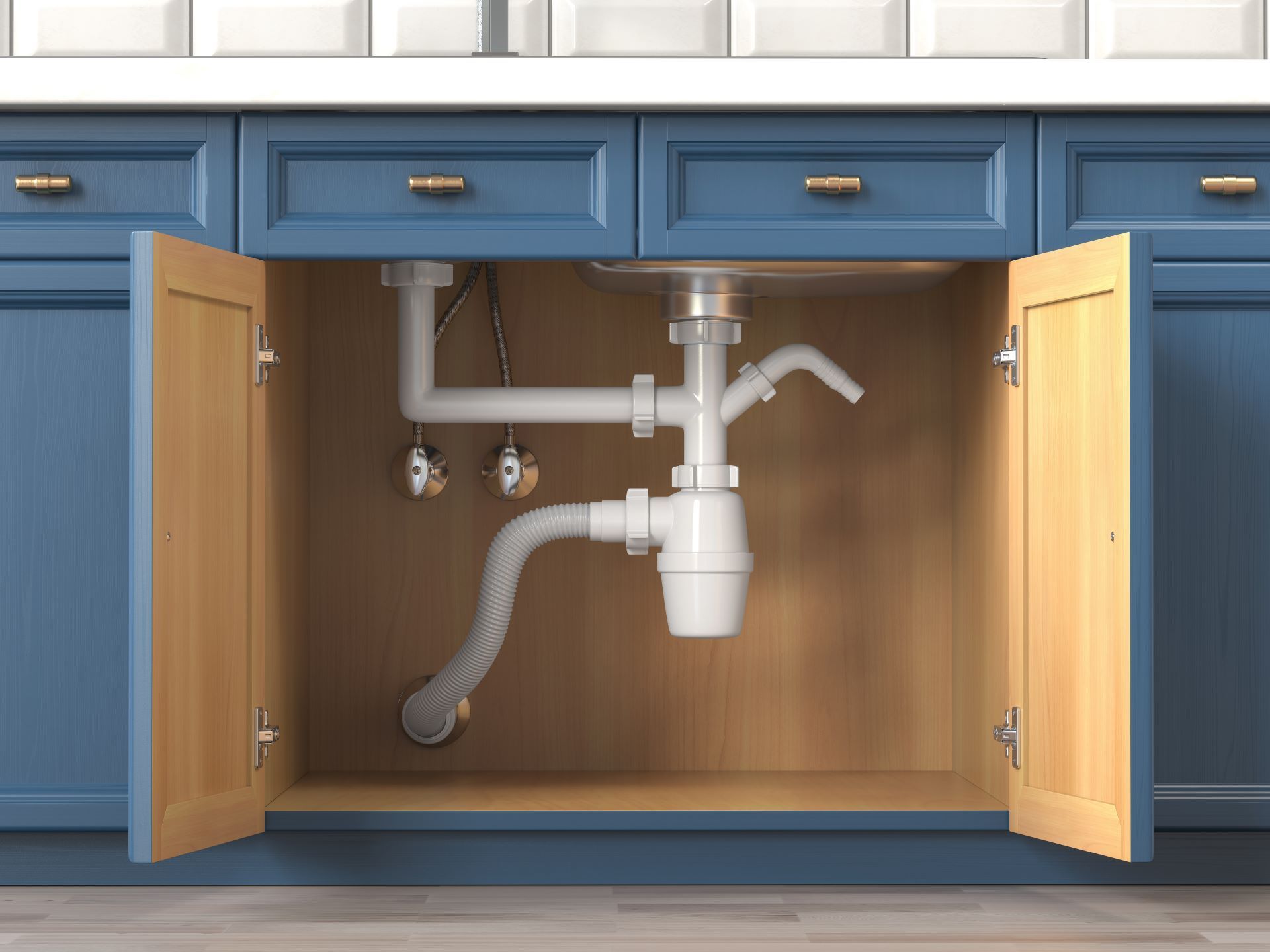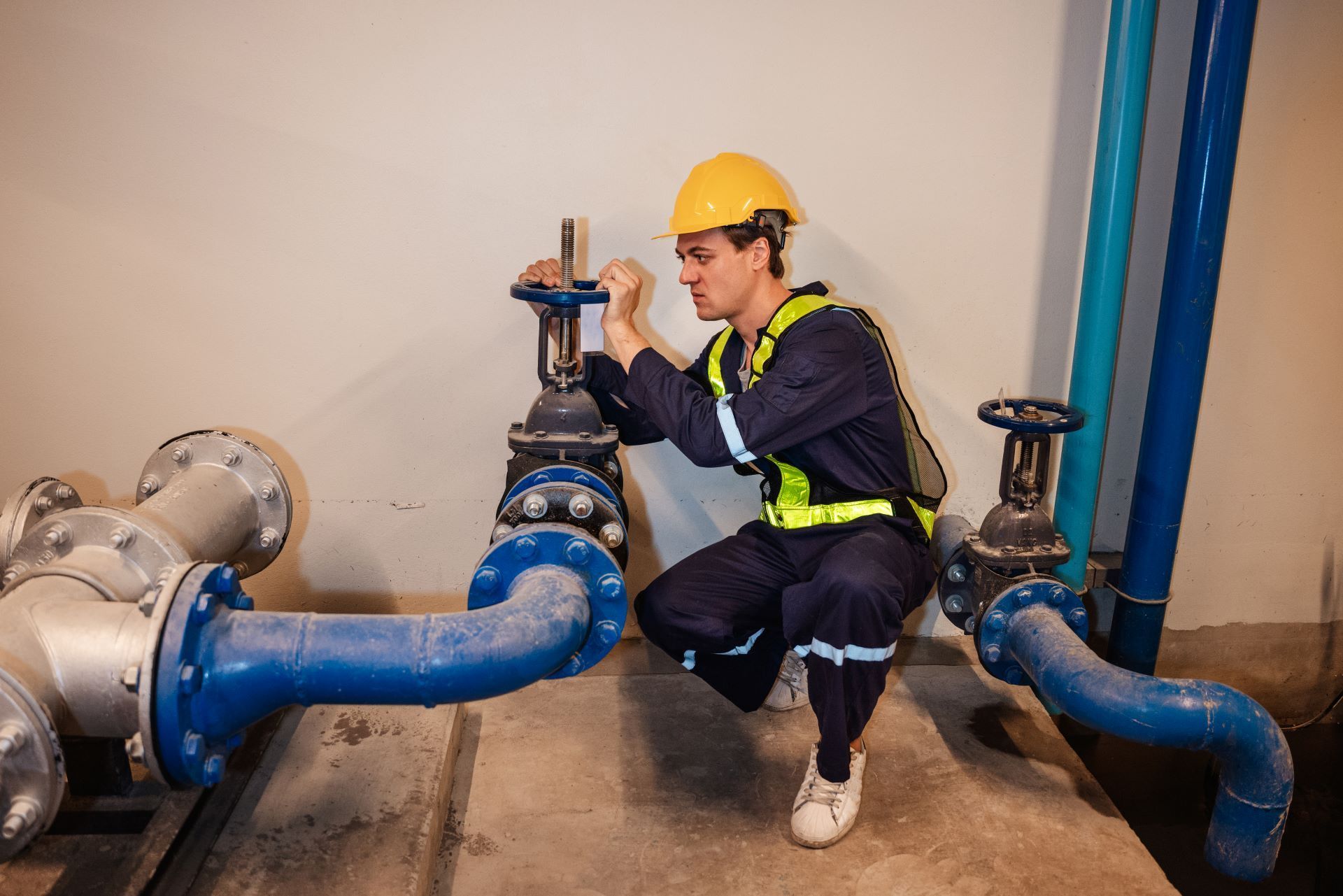Join the Lutz Loyalty Club and start saving today!
How To Spot The Signs of Sump Pump Failure
Jun 26, 2023
Sump Pumps
have a big role in keeping your house safe from those dreaded basement floods. They do this by removing the excess water that accumulates in the sump pit, which helps prevent your home and belongings from water damage.
Other than ruining your items, water damage can also lead to mold growth and other structural issues. Which is why it is important to make sure your sump pump is operating correctly before disaster strikes.
In this blog post, Lutz Plumbing will highlight the signs of sump pump failure so you are always prepared and your home is always protected.

Understanding Sump Pumps
To get a better understanding of how sump pump failure occurs and what that failure looks like, it’s important to understand how these pieces of equipment work.
Typically, sump pumps are installed in the lowest part of your basement or crawl space, which plumbers or contractors will refer to as the “sump pit.” They are usually activated by a float switch that rises with the water level, which then triggers the pump to activate.
The most common types of sump pumps are submersible and pedestal. Pedestal pumps have a motor mounted above the pit and submersible pumps are placed directly into the pit, and become fully submerged in water.
However, both types of sump pumps operate using the same principle in protecting your home from flooding. To ensure they are working correctly, proper installation is paramount. A sump pump that is installed correctly will have a sealed lid or cover to prevent debris and odors from getting into the basement. Also, the discharge pipe will be aimed away from the foundation and should be extended several feet away from the house.
Common Causes of Sump Pump Failure
Overall, sump pumps are quite reliable. But not everything can work perfectly forever, and there are multiple factors that can lead to their failure. Let’s cover a few of the primary reasons why sump pumps may fail:
Power outages and Electrical Issues
Sump pumps rely on electricity to operate, so power outages can render them ineffective during heavy rainstorms or flooding events. Additionally, electrical issues such as faulty wiring or a tripped circuit breaker can disrupt the pump's functioning. It's important to have a backup power source, such as a battery backup system or a generator, to ensure your sump pump continues to operate even during power outages.
Mechanical Failure/Old Equipment
As the rule for most mechanical machines, wear and tear over the years can cause performance issues. On your sump pump, perhaps the motor, impeller, float switch or valve could develop some problems over time which will affect performance. The older your sump pump is, the more prone to failure. This is why receiving regularly scheduled maintenance is essential.
Incorrect Installation
If your sump pump was installed incorrectly, the chances of a system failure are greatly increased. Sometimes even the size of your sump pump could be wrong, such as an undersized sump pump will not be able to handle the volume of water in your area which can cause it to overload. Make sure you work with a trusted sump pump installation specialist to make sure it is the right fit for your home.
Lack Of Maintenance
If you haven’t been taking care of your sump pump over the years, now is a better time to start than not at all. Neglecting routine maintenance like cleaning the tank, inspecting components or clearing out any debris in the pit will leave the door open for clogs and motor issues. Make sure to stay on top of regular sump pump maintenance .
It’s important to stay proactive so you can properly address any of these issues. Next we will cover the signs to keep an eye or ear out for that will really help you be aware when something may have gone wrong with your sump pump.
Signs Of Sump Pump Failure
Here are some common indicators that your sump pump is experiencing issues:
Unusual Noises or Vibrations
Keep an ear out for
weird noises
or obnoxious vibrations coming from your sump pump. If you hear something that sounds like grinding, rattling or squealing, this could suggest some troubling mechanical problems. Excessive vibration could mean loose components or misalignment.
Frequent On/Off Cycling
If you’ve noticed your sump pump turning on and off frequently and rapidly, your sump pump is probably experiencing short cycling. This can start due to a number of reasons, like a faulty float switch, an incorrect pump size, or another pipe may be blocked. If your sump pump is short cycling, this greatly increases the risk of flooding.
Drain Failure
If you happen to notice that your sump pump is not activating when it should be or it isn’t draining water properly, this means there is more than likely a mechanical error occurring. This could be a clogged pump or discharge pipe, a motor failure or a malfunctioning float switch.
Mold Growth or Strong Odors
If your sump pump is operating correctly, it will prevent moisture and dampness from building up in the basement. If you start to notice signs of mold, mildew or foul odors, this could mean your sump pump isn’t properly removing water from the sump pit.
Contact Lutz Plumbing for Sump Pump Installation, Replacement, and Repair
It’s our hope that this blog post will inform you how important it is to make sure your sump pump is operating correctly.
If you find that your sump pump may be dealing with any of the above issues, give Lutz Plumbing a call ! Our team is ready and available for installation of new sump pumps, replacing your old one, and we’re also here to offer sump pump repairs and routine maintenance to keep yours running smoothly for a long time to come.
Share Post
Download the Lutz Plumbing App!
Schedule a Service
Membership Access
Access to Exclusive Offers
Manage Financing
... And More!
Free Safety Inspection
Free Extended Warranties
15% Discount
Free Priority Service
Member Only Specials
No Extra Charges for After Hour Service
Hundreds of Five-Star Reviews
Read why happy customers choose us over and over again.
When you have a
plumbing problem in the Kansas City area, you can rely on Lutz Plumbing to be have 24 hour response time. We are a local, family-owned business who shows up on time and ready to tackle your plumbing problems head on.
From leak detection to water heater service and installation, Lutz Plumbing gives you prompt, efficient and high quality plumbing services from knowledgeable technicians.
Read more about what hundreds of customers like you are saying about our five-star service, or call us today at
913-888-9500 and tell us about your problem today.

Dan
"We called at 6:30 on Sunday evening and Brent was at our door at 7:25 and was extremely professional and completed the work in a clean manner. We will be called Lutz Plumbing moving forward!"
Read All Reviews →
John K.
"The employees are always on time and very knowledgeable about the work to be completed. Very impressed, as always."
Read All Reviews →
Amanda
"I called 27 different plumbers at 11 at night, no one could come or they didn't answer. Brent called back 3 minutes later and came right out and fixed it right away. The price was less than other's day prices, so glad you are in business. I will always use Lutz plumbing from now on."
Read All Reviews →
Articles for Homeowners

Find Your Service Location
List of Services
-
Belton, MOBelton, MO
-
Blue Springs, MOBlue Springs, MO
-
Bonner Springs, KSBonner Springs, KS
-
De Soto, KSDe Soto, KS
-
Eudora, KSEudora, KS
-
Excelsior Springs, MOExcelsior Springs, MO
-
Gardner, KSGardner, KS
-
Gladstone, MOGladstone, MO
-
Grain Valley, MOGrain Valley, MO
-
Grandview, MOGrandview, MO
-
Independence, MOIndependence, MO
-
Kansas City, KSKansas City, KS
-
Kansas City, MOKansas City, MO
-
Lansing, KSLansing, KS
-
Lawrence, KSLawrence, KS
-
Leavenworth, KSLeavenworth, KS
-
Leawood, KSLeawood, KS
-
Lee's Summit, MOLee's Summit, MO
-
Lenexa, KSLenexa, KS
-
Liberty, MOLiberty, MO
-
Linwood, KSLinwood, KS
-
Merriam, KSMerriam, KS
-
Mission, KSMission, KS
-
North Kansas City, MONorth Kansas City, MO
-
Olathe, KSOlathe, KS
-
Overland Park, KSOverland Park, KS
-
Parkville, MOParkville, MO
-
Platte City, MOPlatte City, MO
-
Prairie Village, KSPrairie Village, KS
-
Raymore, MORaymore, MO
-
Roeland Park, KSRoeland Park, KS
-
Shawnee, KSShawnee, KS
-
Spring Hill, KSSpring Hill, KS
-
Tiffany Springs, MOTiffany Springs, MO
Local Office
21961 W 83rd St
Lenexa, KS 66227
Contact
Office Hours
Monday - Friday: 8a - 6p
Saturday: 8a - 4p
24 Hour Response
License
#20202383
Financing














